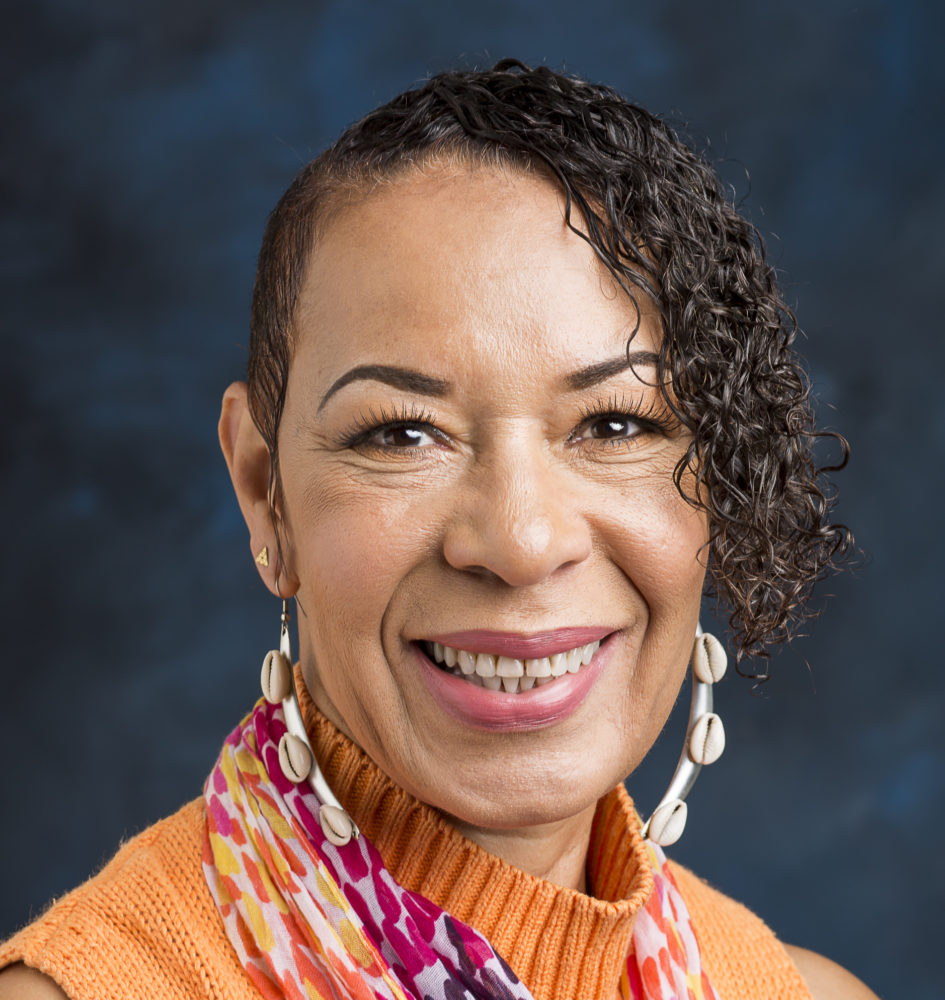
Cheryl Grills, professor of psychology and director of the Psychology Applied Research Center at Loyola Marymount University, has been named a finalist for the Thomas Ehrlich Civically Engaged Faculty Award. Grills is one of only three finalists from a group of distinguished nominees for this national award.
The Ehrlich Award is given annually to recognize a senior, tenured faculty member for exemplary leadership in advancing students’ civic learning, supporting community engagement, and contributing to the public good. It is bestowed by Campus Compact, a national network of colleges and universities dedicated to deepening higher education’s role in improving community life and educating students for civic and social responsibility.
Since 1987, Grills’ commitment to community-based work has guided and inspired her teaching. “I seek to empower students to value their culture and their own social experiences while seeking to understand and respect the experiences of others,” explains Grills. For example, students in “General Psychology” work closely with homeless men and women in downtown L.A.’s skid row. Working in teams, students teach a topic covered in the course while experiencing what is means to be persons for others.
“Every year, Grills’ students develop new insights, skill sets, and clarity around their own career paths while participating in real-time projects with a diverse set of community-based organizations across the U.S.,” writes U.S. Rep. Karen Bass, chair of the Congressional Black Caucus, in her nomination letter. “At the same time, historically oppressed and marginalized communities of color have benefited from these community-based class projects.”
As a psychologist, community-based scholar, professor and community leader, Grills uses participatory research to track and address issues faced by marginalized communities. She is the founder of the community-based, nonprofit research center, Imoyase Community Support Services, as well as founder and director of LMU’s Psychology Applied Research Center. Both are grant-funded centers that are approached regularly by local, state, and national organizations to provide research and technical assistance around a host of equity and justice concerns. LMU undergraduate and graduate students often participate in these projects through their courses or as as research assistants.
In addition to her work as a leading action researcher, Grills also facilitates training associated with understanding racism, overcoming racial stress, and mitigating implicit bias, using culturally appropriate frameworks and community empowerment models. Grills has led many efforts to globalize and diversify LMU’s community, including the addition of community-engaged learning as a requirement in LMU’s Core Curriculum, and the establishment of a first-year retention program for African American undergraduates called LMU TLC (The Learning Community). She has led several study-travel courses to Africa working with partner organizations in Ghana. Nationally, Grills works through the Community Healing Network to present workshops supporting the work of the Congressional Black Caucus to redress racism through understanding its root causes.
“I truly cannot imagine a more worthy acknowledgement,” says Robbin D. Crabtree, dean of the LMU Bellarmine College of Liberal Arts. “Prof. Grills’ visionary sense of vocation, community connectedness and impact as a scholar, her commitment to engaged pedagogies, and her influence on the culture of LMU towards inclusivity and community accountability cannot be overstated.”
Grills has been the recipient of numerous awards for her work, though accolades have never been her driving force. “My work represents my belief in fairness, equity, the value in every person, and the profound wisdom found across cultures and community,” says Grills. She is deeply humbled to be a finalist for the Erlich Award.
“It has been a privilege to live a life of purpose; to touch and be touched by the lives of my students, community partners, and colleagues; and to get into ‘good trouble’ in the service of justice,” reflects Grills. “‘I am my ancestors’ wildest dreams.’ For that, I am truly grateful.”



